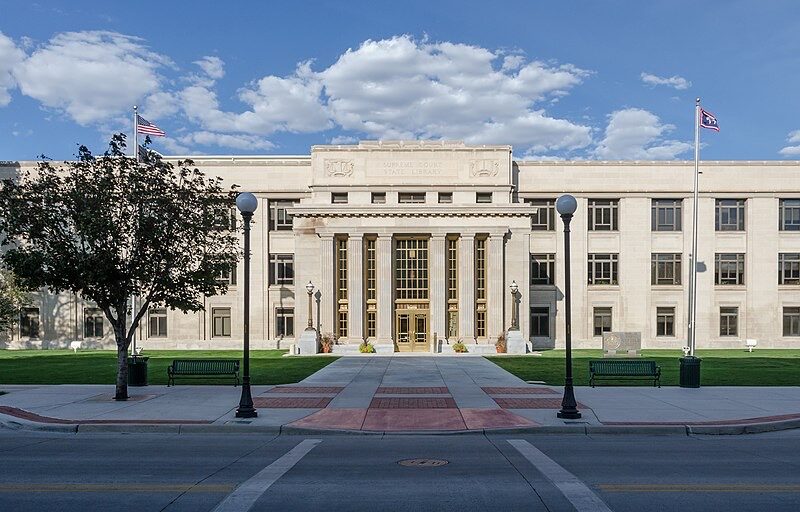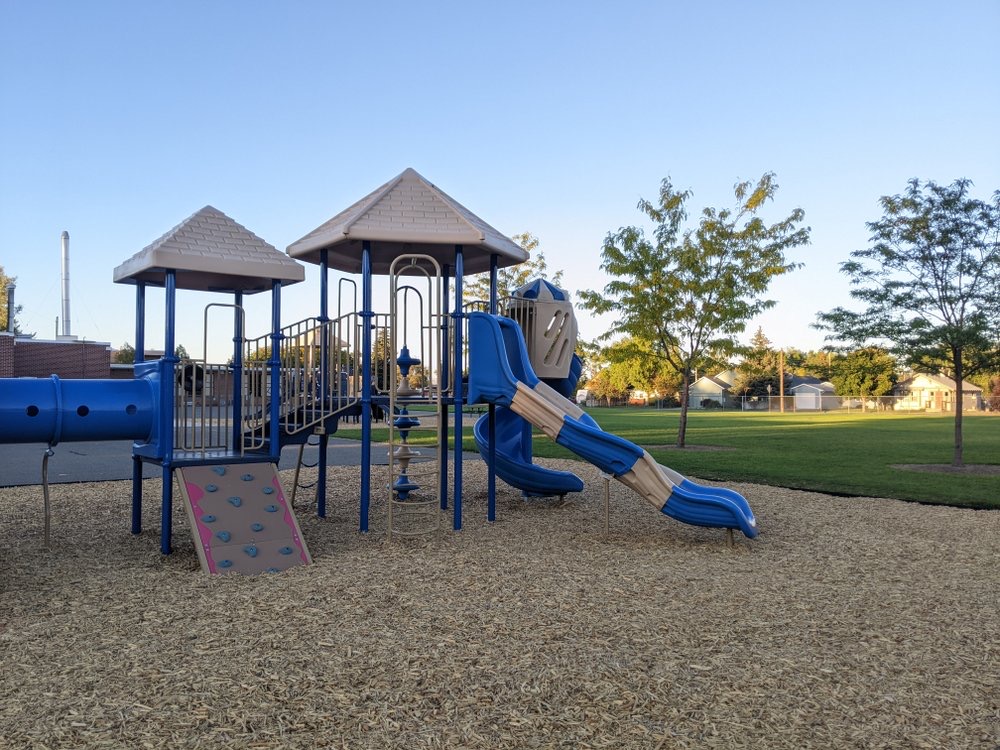Supreme Court Declines to Intervene in Education Funding Fight
Schools and educators said the state’s request for review was off-base
- Published In: Politics
- Last Updated: Sep 30, 2023

Although the Wyoming Attorney General’s Office asked it to get involved in a fight over K-12 education funding, the Wyoming Supreme Court declined to do so. The case will continue to proceed in Laramie District Court. (Photo courtesy DXR via Wikimedia Commons)
By CJ Baker
At least for now, the Wyoming Supreme Court is staying out of a legal fight over the state’s K-12 education funding.
The Wyoming Education Association (WEA) and eight school districts are suing the state, contending lawmakers are failing to provide enough money for the public school system. The case is set to be tried in Laramie County District Court next summer. If history is any indication, whoever comes out on the losing end will likely appeal to the Wyoming Supreme Court. Last month, the Wyoming Attorney General’s Office asked the high court to jump in earlier and overturn one of the preliminary rulings from presiding District Court Judge Peter Froelicher. The justices declined to do so last week.
At issue is the burden of proof that will be applied to the case. Froelicher ruled in July that, if the WEA and school districts can prove the legislature has harmed Wyoming students’ constitutional right to a public education, the state’s action will be subject to “strict scrutiny.” That means the state will have to prove its actions (or inaction) were “forced” by a compelling governmental interest and that it worked to minimize harm.
The attorney general’s office warned last month that the ruling could “embroil the courts in an unending stream of litigation over funding levels.” It argued that applying strict scrutiny to the funding provided to education would allow judges “to second-guess and effectively dictate the amount of education spending” made by the Legislature. The state attorneys also contended that the Supreme Court’s past rulings on school finances are “difficult to reconcile” and suggested the justices provide clarity.

However, the school districts and WEA said Froelicher simply followed four decades of clear case law.
“While the state essentially is attempting to re-argue points previously raised and rejected in earlier cases, there is no reason to afford the state a special opportunity to attempt to overrule decades of precedent at this time,” wrote WEA attorney Patrick Hacker, a former state representative.
Hacker said the state was “seeking to change the rules,” suggesting it won’t be able to justify its education funding under a strict scrutiny standard. The plaintiffs contend that legislative funding has failed to keep up with rising education costs. They want the court to require lawmakers to provide more money for salaries, security measures, mental health issues, school lunches, new buildings and other needs in the public K-12 school system.
The state says the suit is an attempt to “override decisions of the elected representatives of the citizens of Wyoming.” According to estimates from the Legislative Service Office, Wyoming will pour nearly $1.59 billion into its public schools this year – not including federal dollars, capital construction, major maintenance and some other revenues. However, the LSO recently found that funding is $30 million short of what the state’s consultants have recommended.
In opposing the state’s petition, both the WEA and the school districts said it would be better for the high court to review the case after a trial, when there’s a full and complete record.
“Neither the parties nor the court should be put to use valuable time and resources to obtain a ruling which would not materially change anything about how the case proceeds or is tried, and which would have to be revisited anyway following the full trial of this matter,” Hacker wrote, suggesting the case will ultimately wind up before the Wyoming Supreme Court.
As is its standard practice, the court gave no indication as to why it rejected the state’s petition. The short order from Justice Keith Kautz included only boilerplate language, stating that after “a careful review” of the materials, “this court finds that the petition should be denied.”
The case is now back in Laramie County District Court, with a trial set for June 3 to July 9, 2024 in Cheyenne.













